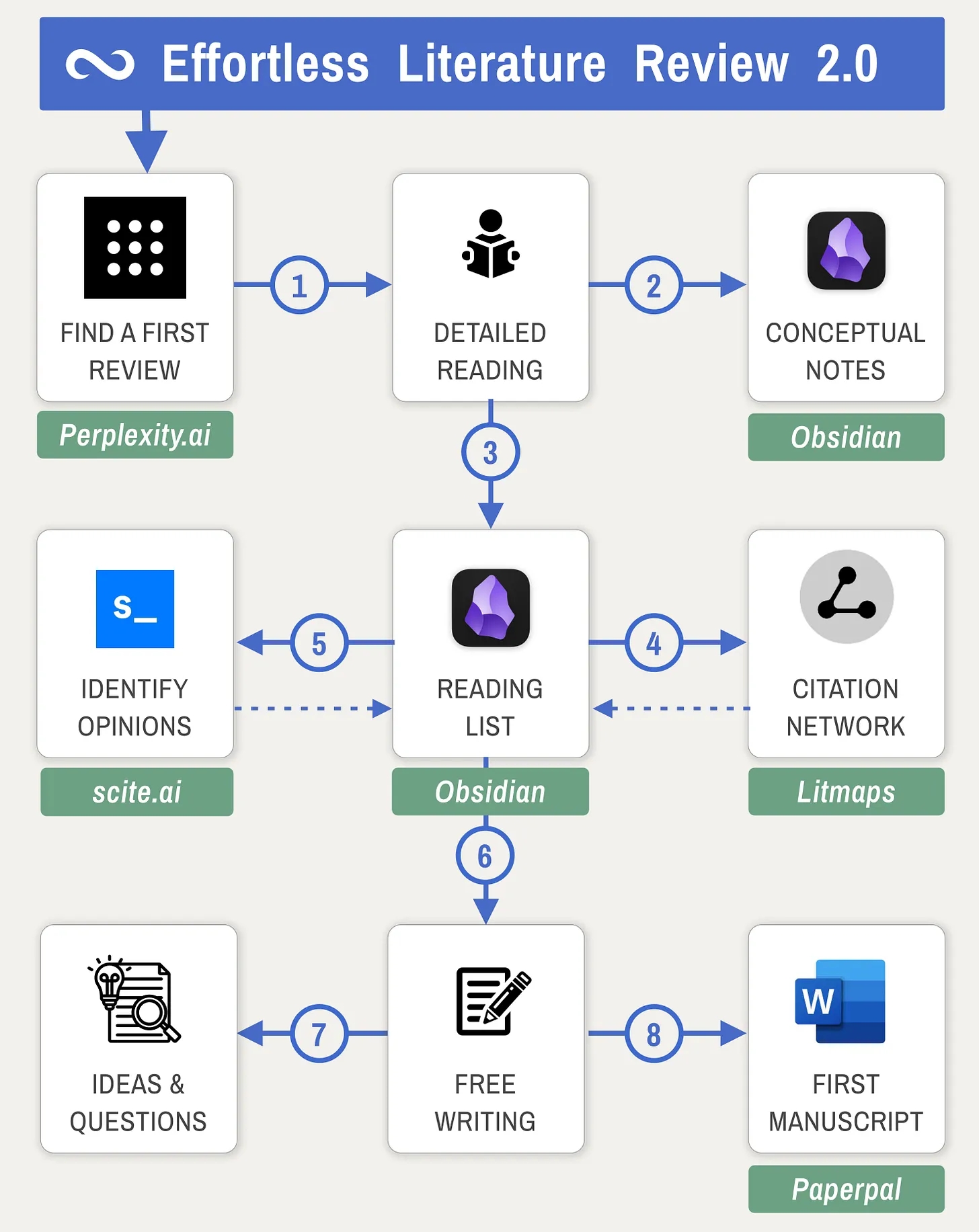🎆Introduction
Overview
Literature reviews are an essential part of academic research. They allow researchers to gather and synthesize information from previous studies, identify gaps in the literature, and develop new research questions.
Traditionally, literature reviews have been conducted manually. Researchers would search for relevant articles in academic databases, read them carefully, and take notes. This process can be time-consuming and tedious.
In recent years, artificial intelligence (AI) has been used to automate some of the tasks involved in literature reviews. AI tools can be used to search for relevant articles, summarize the content of articles, and identify relationships between articles.
This book provides an overview of the use of AI tools for literature reviews. It covers the following topics:
The benefits of using AI tools for literature reviews
The different types of AI tools available
How to use AI tools to conduct literature reviews
The limitations of AI tools for literature reviews
The book is intended for researchers who are interested in learning more about the use of AI tools for literature reviews. It will also be of interest to librarians and information scientists who are involved in the development and evaluation of AI tools for research.This book will teach you the basics using AI tools for Literature Review.


Tools you’ll learn in this course
Zotero for reference managing
Learn how to use Zotero Connector. Add literature to your library. Create research collections. Add plugins and integrations. Highlight and annotate PDFs. Exporte notes. Add in-text citations in Word or Google Docs. Manage citation styles. Create a bibliography.
Obsidian for Note Taking
Obsidian is your personal Wikipedia. Link your notes and find them instantly. Create mindmaps and visualize your notes. Embed PDFs to see within your notes. Stop losing your best thinking and start creating. Enhance obsidian functionality with selected plugins.
ResearchRabbit and alternatives
Discover new literature, visualize citation networks, find gaps in the literature, and increase your understanding of your field with state-of-the-art tools including ResearchRabbit, Litmaps, and Scholarcy.
R and Quarto for Reproducible Research
Embrace the paradigm of literate programming to combine text and code for reproducible reports and papers. Use R and Quarto as a lab/computational notebook and for analyzing and visualizing your data.
ChatGPT and other AI tools to assist your research workflows
Unlock the power of ethical use of AI for rewriting, paraphrasing, and polishing your prose. Use prompt techniques for better outputs, including tips to talk and train your AI assistants. Summarize papers, brainstorm research ideas, and make your coding effortless.
Last updated